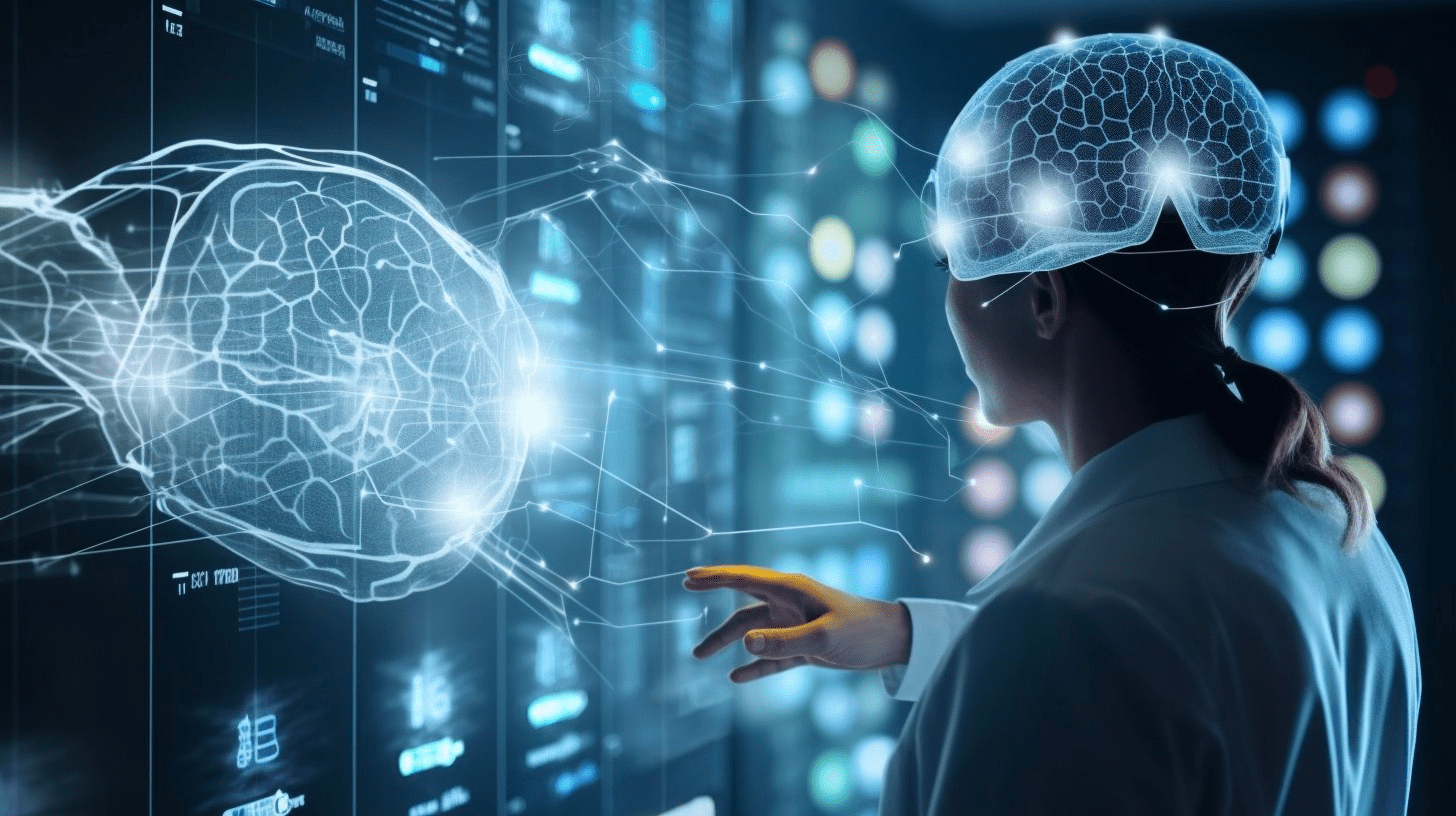
Introduction
The daily barrage of new stories about artificial intelligence (AI) is showing us every day that this disruptive technology is on the verge of revolutionizing healthcare. Whether it’s predicting the next 30 seconds of a surgical procedure or detecting the probable outcome of a graft transplant, AI has it all. In recent years, AI has revolutionized the way doctors diagnose and treat patients, enhancing the accuracy and efficiency of medical practices. Here we shall talk about the innovations of AI to transform healthcare.
AI Imaging Assistants: The New Eyes Enabling Discovery and Precision in Medicine
Traditional methods of imaging, such as X-rays, MRIs, and CT scans, have reached a whole new level through AI. Machine learning algorithms can analyze medical images with remarkable precision, almost like a backup or failsafe system that can run in the background to see if the radiologist missed anything. For example, AI-powered systems can detect abnormalities in X-rays, helping radiologists identify conditions like lung cancer, fractures, or heart disease more quickly and accurately. AI can analyze thousands of scan reports in 90 seconds, which otherwise demands 4 hours of manual investment. Studies have shown that the error rate of radiologists has decreased from 3.4% to 0.5% in recognizing cancer-positive lymph nodes using AI.
Predictive analytics and personalized treatment plans
AI’s ability to process vast amounts of data is a game-changer in healthcare. By analyzing patient records, medical history, and even genetic information, AI can predict the likelihood of a patient developing a particular condition. For example, AI-driven predictive analytics can help identify patients at high risk of diabetes or heart disease. Doctors can then intervene early, offering lifestyle recommendations or medications to prevent the disease from progressing. AI is enabling doctors to create personalized treatment plans, including factors like genetics, lifestyle, and even the microbiome, through which the most effective treatment options and medication dosages for individual patients are recommended. This approach is especially critical in oncology, where AI can help oncologists choose the most suitable chemotherapy regimen based on a patient’s genetic profile.
Chatbots and telemedicine
AI is not only transforming diagnostics and treatment within the hospital or clinic but also changing the way patients interact with doctors. Chatbots powered by AI can provide immediate responses to patients’ inquiries and offer basic medical advice. These virtual assistants can help patients make informed decisions about whether to seek medical attention based on their symptoms. Chatbots have already been through trials in obstetrics, with 96% of patients viewing the tool positively, as reported by the American College of Surgeons. Moreover, telemedicine, which has gained significant traction in recent years, relies heavily on AI for remote consultations and monitoring. Patients can connect with doctors from the comfort of their homes, and AI tools can assist in assessment and follow-up care. This approach not only enhances accessibility to healthcare but also reduces the burden on hospitals, particularly during public health crises.
The Rapid Emergence of Med-AI
If we look into the practical progression of AI-based disease diagnostics, a UK-based study revealed that AI could interpret mammograms with a reduction in the absolute number of false positives and false negatives by 5.7% and 9.4%, respectively. Moreover, AI-driven tools have increased the accuracy of skin cancer determination for dermatologists to more than 95%. Doctors are applying AI technology to a wide range of other disease states, which includes-
- The detection of diabetic retinopathy, abnormal ECG readings, and the prediction of cardiovascular disease risk factors.
- Improved diagnosis of pneumonia through chest radiography using deep learning algorithms.
- Laparoscopic and robotic surgery, where information and guidance from AI during surgery can provide decisions and support to surgeons.
- Numerous machine learning systems have been created to identify, classify, and quantify microorganisms, as well as to diagnose and predict clinical outcomes.
- Digital in-line holographic microscopy (DIHM) in conjunction with machine learning algorithms could efficiently identify malaria-infected red blood cells without staining.
- Joint replacement surgeries are being carried out successfully through an AI-programmed robot assistant.
- A predictive AI model has been developed for premature babies that is 75% accurate in the detection of sepsis.
- AI in clinical microbiology labs is helping with the selection of suitable antibiotic treatment plans, which is essential for obtaining high cure rates for a variety of infectious diseases.
As AI progresses every passing day, its implications for the healthcare industry are gaining interest. This is of immense importance to doctors, who have to deal with complicated situations affecting patient health daily.
Challenges on the Way and Future Prospects
Despite the progression and demand, we must know that the field of AI in diagnosing and treating medical conditions is still in its infancy, and before the technology can realize its full potential, several ethical, legal, and technical obstacles must be resolved.
- AI algorithms demand a lot of exclusive data to work well, which the medical industry frequently fails to provide.
- In addition, AI algorithms may be biased and produce unfair or inaccurate diagnoses if they are programmed on different population data that they’re not meant for.
We must not forget that to use AI in healthcare responsibly and effectively, issues with bias, data privacy, and the requirement for human expertise must be resolved.
Achieve Healthcare Transformation with Codewave’s AI Expertise
When implemented judiciously, AI holds immense promise to transform medical diagnostics and treatment by enhancing the accuracy, efficiency, and accessibility of care. The good news is that Codewave is right here for you, with an array of services combined with intellectual AI-based technologies for doctors and healthcare providers. We have been serving in the North American and European regions for more than 10 years and delivering precious AI-based solutions to the health science industry in the face of rapid progression with great precision. Together, we can shape the future of healthcare by leveraging AI’s immense potential to transform diagnostics, management, and treatment – creating innovative solutions that improve lives.
